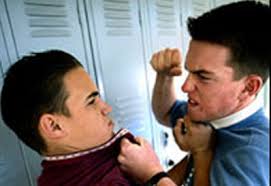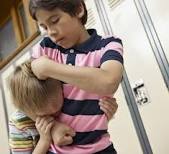Blog Archives
When Aspie Brains Attack
In general, people with Aspergers love to learn. Many Aspies find themselves bored in school, simple because the flow of new information is too slow for their brains to maintain focus on. Some parents choose to homeschool their Aspie children; very often these children end up one or even two grades ahead, simply because once they start learning they DO NOT WANT TO STOP. There’s no better feeling for me personally than learning some weird obscure fact or understanding a concept that has eluded me for a while.
Oh, I get it now! You remove the Pop Tarts from the foil package BEFORE putting them in the toaster!
The one thing that us Aspies hate about learning – it’s work! It’s hard. We don’t like it when things are hard. Being challenged is one thing, but we want to be challenged in a way where success is guaranteed. Unfortunately, in the process of learning it’s very common for people to get things wrong. Being wrong sucks. Sometimes the prospect of being wrong is so scary and overwhelming that it can launch an Aspie right into what is known as the “Failure Cycle,” shown abpve.
And shown below, more delicious breakfast pastries.
It’s all part of the Aspergers Decision Tree, which basically covers everything from “I love learning! This is so cool!!!” to “I HATE BEING WRONG, THIS IS THE WORST THING THAT COULD EVER BE!!!” And, yes, it’s that extreme. Some Aspies can be so intimidated by the possibility of failure that they get stuck and refuse to make a decision for fear of making the wrong choice. Others will deliberately make a wrong choice – because, hey, if you’re gonna be wrong, might as well be wrong on your own terms, right?
No matter what you say, Mom, I’m sure the knives belong here instead of the kitchen drawer…
As parents, caregivers, spouses, etc., it is our job to help the Aspie escape the cycle by prompting them to make a choice… any choice! We Aspies must learn that it’s okay to make the wrong choice, as long as we learn from our mistakes. It’s one of the most important lessons anyone must learn. It just takes Aspies a little longer to accept it.
Don’t Sweat the Incredibly Large Important Stuff
It’s kind of funny how my brain processes stress. I don’t know if it’s my Aspieness or just the way I am, but I seem to be somewhat immune to the rising pressure of a life or death situation.
This actually comes in handy at work. In my job, one mistake can literally kill a person. Sure, there are quality checks in place to prevent this from happening, but the checks are not perfect. The fact remains – I could seriously harm or kill a person with a mistake as small as a typo. And, oh yeah, I almost forgot… in certain situations, if I don’t work quick enough, someone might die as well. So pretty much every day, lives depend on my ability to be fast and accurate with my work. Can you imagine if every time you got the wrong order at the drive through window, you ended up dead?
Now here’s the funny thing: it doesn’t bother me in the least. I actually find myself strangely energized when I’m thrusted into those types of high pressure situations. I excel, I succeed, and dare I say it… I have fun. It’s not that I don’t understand the severity of the events. I just know I’m that damn good at my job to handle even the heaviest situation.
Ironically, it’s the smaller things that tend to drive me crazy. Situations that would seem insignificant to you end up tying me in knots: if my wife sends me to the store to get a specific item and it’s sold out, if I misplace something and can’t find it, or if I start to cook something and I’m missing an ingredient. Just the other day, I threw a tantrum because I couldn’t get the Food Saver to work properly while trying to prep meat for the freezer.
IT’S THE END OF THE WORLD!!!!
But seriously… I find it fascinating that I can keep it together at work when someone’s life hangs in the balance, yet completely lose my shit in the face of freezer burn.
A Mighty Roar
It can be very difficult for parents of Autistic children to deal with, but this is a fact: tantrums are unstoppable. And in the case of children with Autism, the tantrums are SO MUCH MORE INTENSE.
If you are a parent of a child on the spectrum, I am about to tell you something you won’t want to hear: the tantrums don’t go away with age. I’m a full grown adult (sort of), and I still throw tantrums when I lose my keys.
The good news is that it’s not your fault. You may feel like you are causing the tantrums by either using discipline or holding firm to boundaries, but it’s not that. Sometimes it can be the smallest thing that sparks a tantrum. For me, it’s losing something. For someone else, it can be an uncomfortable setting (too warm/too cold/too loud/too quiet/etc.). Some kids can throw a tantrum over a broken toy. Some can go off because they didn’t get the right amount of chocolate chips on their cookie. It’s different with every Spectrumite.
So, how to deal with the tantruming child? Well, let’s start with what not to do. First, don’t tell the child to be quiet or to not be upset – this will only make the child feel alienated and “wrong” for being upset. Second – and trust me on this – do NOT let them “cry it out.” Tantruming Spectrumites very often get physical during tantrums and can cause harm to objects and themselves. If you just let them get it all out, you may end up with a broken lamp or a broken body part.
The best course of action is to hold the child tight and let them know everything is going to be okay. This is where wrestling skills come in handy. Your youngster is going to fight back; don’t take it personally. But, BE CAREFUL!!! Remember, you are trying to prevent harm, not cause it. So make sure your child can breathe and nothing is bending at any weird angles. Also, do your best to soothe. Speak in a soft voice; tell him you love him, that it’s going to be okay, or sing a lullaby she likes. Don’t expect an immediate response, but it will sink in and they will feel more confident in their bond with you. When your child (FINALLY!!!!!!) begins to calm down (AFTER 19 HOURS OF SCREAMING!!!!!), reinforce the fact that everything is okay, and s/he shouldn’t feel bad about going off.
Tantrums can be scary, especially for parents of Autistic children. But when you know how to handle them, you can get through them with at least some of your sanity intact.

























